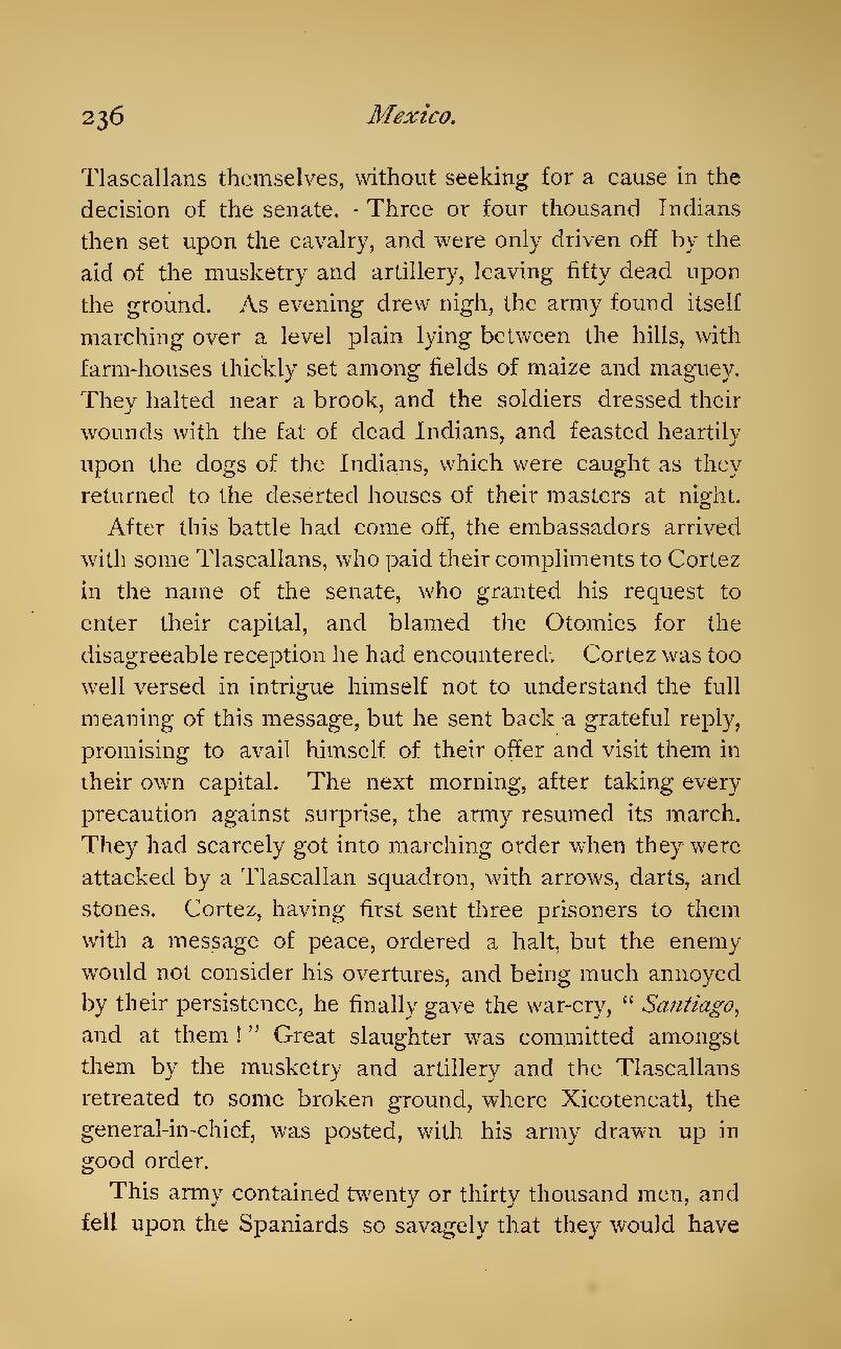Tlascallans themselves, without seeking for a cause in the decision of the senate. Three or four thousand Indians then set upon the cavalry, and were only driven off by the aid of the musketry and artillery, leaving fifty dead upon the ground. As evening drew nigh, the army found itself marching over a level plain lying between the hills, with farm-houses thickly set among fields of maize and maguey. They halted near a brook, and the soldiers dressed their wounds with the fat of dead Indians, and feasted heartily upon the dogs of the Indians, which were caught as they returned to the deserted houses of their masters at night.
After this battle had come off, the embassadors arrived with some Tlascallans, who paid their compliments to Cortez in the name of the senate, who granted his request to enter their capital, and blamed the Otomies for the disagreeable reception he had encountered. Cortez was too well versed in intrigue himself not to understand the full meaning of this message, but he sent back a grateful reply, promising to avail himself of their offer and visit them in their own capital. The next morning, after taking every precaution against surprise, the army resumed its march. They had scarcely got into marching order when they were attacked by a Tlascallan squadron, with arrows, darts, and stones. Cortez, having first sent three prisoners to them with a message of peace, ordered a halt, but the enemy would not consider his overtures, and being much annoyed by their persistence, he finally gave the war-cry, "Santiago, and at them!" Great slaughter was committed amongst them by the musketry and artillery and the Tlascallans retreated to some broken ground, where Xicotencatl, the general-in-chief, was posted, with his army drawn up in good order.
This army contained twenty or thirty thousand men, and fell upon the Spaniards so savagely that they would have
